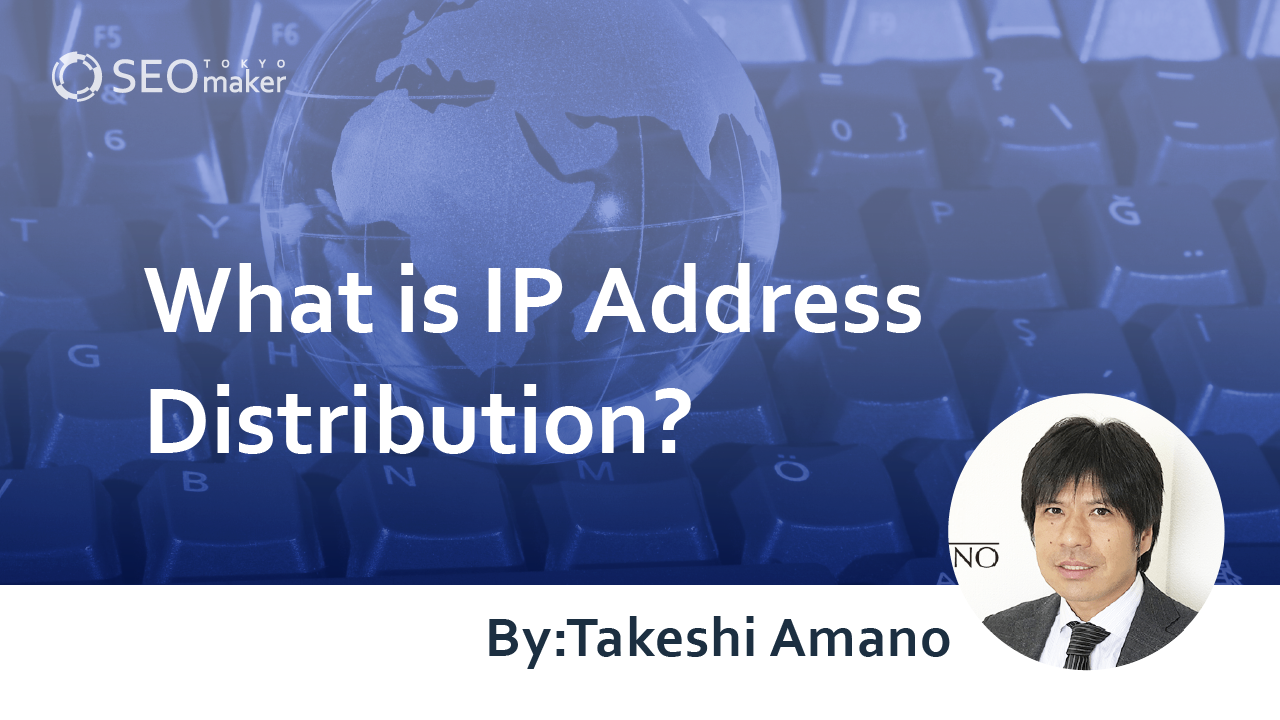What is IP Address Distribution? Explaining if Backlinks Really Affect SEO
contents

In SEO , external links are a common focus. When researching how to generate external links independently, the concept of IP distribution often arises.
There was a time in the 2010s when IP address distribution (spreading backlinks across multiple IP addresses) was effective. However, today, it no longer offers the same impact and has become a cost-ineffective SEO strategy. While not entirely ineffective, it comes with risks of penalties, making it not advisable for those without the right knowledge.
Tokyo SEO Maker explains the details of IP address distribution.
What is IP Address Distribution?
Websites are hosted on servers, each of which has an IP address. IP address distribution involves setting up multiple server IP addresses to increase the number of backlinks—a tactic known as IP spreading.
IP Address ➡ 118.27.99.152
However, employing IP address distribution can often lead to self-made links, which, if not managed properly, could result in penalties. While actively used in the 2010s, by the 2020s, the risks outweighed the benefits, leading to a decline in its use. It is one of the most common techniques used in black-hat SEO .
[Side Story] How long was IP address distribution mainstream?
In the 2010s, creating backlinks was a predominant SEO strategy. However, as the number of backlink sites excessively increased, Google introduced the Penguin update in 2012 to combat the chaos. This update led to significant ranking fluctuations, especially penalizing low-quality sites and SEO-focused backlinks.
Though backlink practices continued, the Penguin updates in 2013, 2014, and a subsequent one in 2016 gradually integrated these checks into regular updates.
While significant SEO benefits from IP address distribution were still reported around 2017, it suggests that while its prime was in the early 2010s, some effects might still be lingering today.
Distribution of Class C IPs
An IP address is composed of four sets of numbers ranging from 0 to 255. These sets are categorized as Class A, Class B, Class C, and Class D. When only the Class D segment differs, it indicates that the domains are on the same server, which is why distribution at Class C or above is essential for IP address diversification.
For instance, for the IP address “123,223,323,423”, if the first three segments “123,223,323” are the same, search engines will recognize any domains under this as self-generated, even if the domains themselves are different. Diversification at the Class C level means that the IPs are considered to be on different servers.
- Class A Distribution: Different starting from the “123” segment.
- Class B Distribution: “123” remains the same, different starting from the “223” segment.
- Class C Distribution: “123,223” remains the same, different starting from the “323” segment.
Methods to Check IP Addresses
There are many ways to find out a server’s IP address, but the easiest is using tools like SEO Checki. For example, when checking “google.co.jp” with SEO Check, the IP address shown under the server/domain section is 172.217.175.3, which is the IP address for google.co.jp.
Necessity of IP Address Distribution
Distributing IP addresses is almost synonymous with creating your own backlinks, so normally there isn’t a need to perform IP address distribution. However, creating satellite sites, separate from whether they are self-operated or not, is indeed a practice that exists.
There’s nothing inherently wrong with linking within one’s own network, and it can positively impact your SEO. In such cases, distributing IP addresses to target SEO benefits is feasible.
For Securing Backlinks
Collecting external links can improve SEO. However, this is only effective if the IP addresses are different. More specifically, there is said to be an SEO benefit only when IP addresses are distributed above Class C.
Even if distributed at Class D, links from within the same server are treated as internal links, which do not receive the same evaluation as external links.
IP Address Dispersion for Satellite Sites
It’s common to have satellite sites in addition to a company’s main site. These sites can be hosted on the same server, but in cases of large-scale operations or intensive processing, or due to security concerns, it might not be feasible to host them on the same server.
In such instances, setting up different servers becomes necessary, naturally leading to IP address dispersion.
Risks of Black Hat SEO
There’s generally no need to disperse IP addresses. However, Niccolò Machiavelli in “The Prince” suggested that a ruler needs the ferocity of a lion and the cunning of a fox. While it’s crucial to know about IP dispersion for competitive analysis or troubleshooting, it’s a risky technique not recommended for those without expertise.
IP dispersion can lead to penalties as it often equates to creating self-serving backlink sites, a practice widely used in black hat SEO strategies.
Creating a large number of backlinks by distributing IP addresses and aiming for SEO effects through self-created links is known as Black Hat SEO, a method that carries a high risk of penalties. The term ‘Black Hat’ comes from the black hats worn by villains in Western movies, indicating the dubious nature of such practices.
If you create a large number of self-created links, you may receive a penalty from Google. This is known as a manual penalty and can be confirmed through Google Search Console. You can also use the disavow links tool in Search Console to remove the penalty.
However, this is only possible if you remove or make an effort to remove all unnatural links and disavow only those that cannot be removed. The period from receiving a penalty to its removal can be as short as one month or as long as a year. Considering this effort, it is better not to engage in risky practices from the start.
Creating Satellite Sites Is Not a Problem
It should be understood that creating satellite sites is not an issue in itself. The problem arises when creating backlinks solely for link manipulation, which is Black Hat SEO. It is common to create sites focused on specific fields and provide valuable content to attract visitors. Linking related sites can positively impact your main site.
High Effort with Little Effect
On the other hand, aiming for SEO effects by attaching backlinks from the start, simply dispersing IP addresses, will not result in significant SEO benefits. Search engines do not index content that lacks value.
Natural backlinks are crucial, but if the linking site (the source site) lacks value, it will not contribute to SEO. To make a site valuable, you need to provide high-quality content that offers value to users.
If you are managing multiple sites with high-quality content, it would be more effective to focus on improving the content of your main site. Creating one or two backlink sites will not have much SEO impact.
Managing multiple satellite sites with continuous high-quality content involves significant effort and management costs. Despite these efforts and costs, the SEO benefits are often minimal.
The Importance of High-Quality Content
No matter which web media you read or which SEO company you consult, you will always find that high-quality content is essential. Nowadays, the non-essential SEO practice of setting up and managing sites with dispersed IP addresses, which used to require a lot of effort, is no longer necessary. Instead, the focus has shifted to how well you can capture the needs of users and create content that meets those needs.










![What is a Description? Explaining the Meaning, Writing Style, and Changing Word Count – [2023 Edition]](https://www.switchitmaker2.com/en/wp-content/uploads/2024/09/what-is-description.webp)










